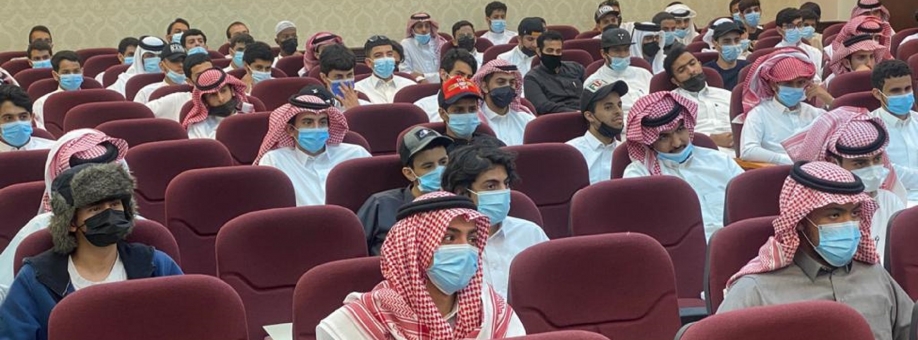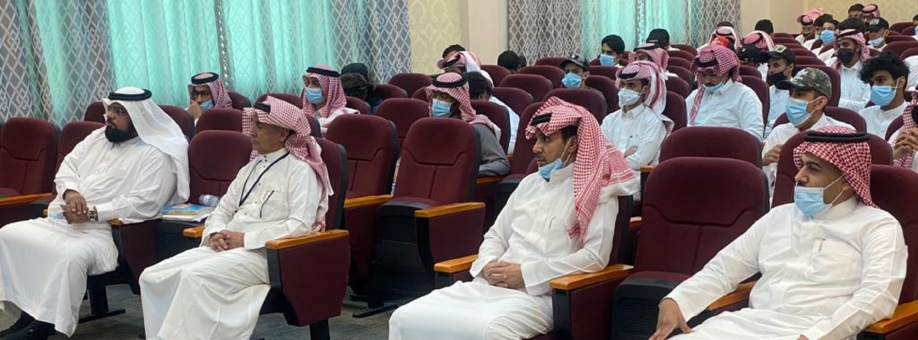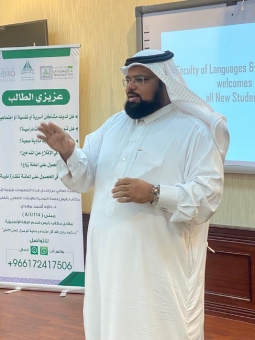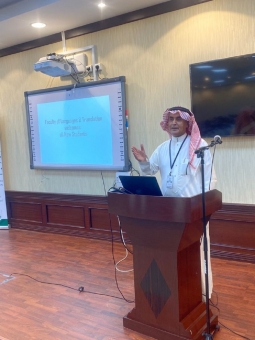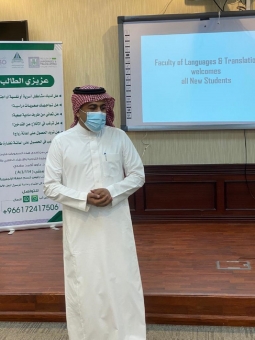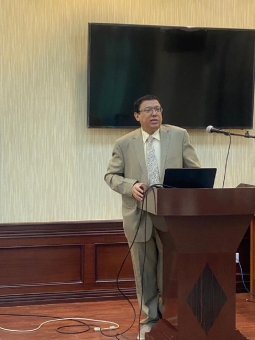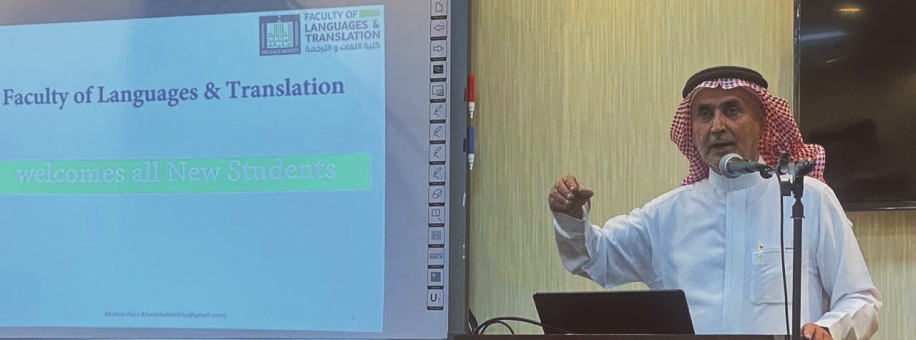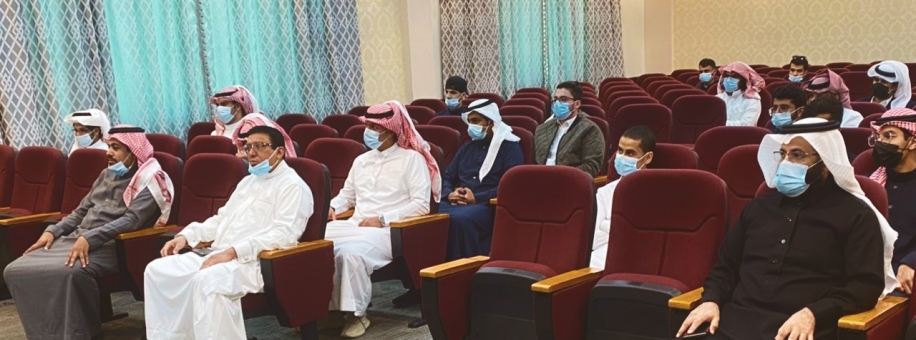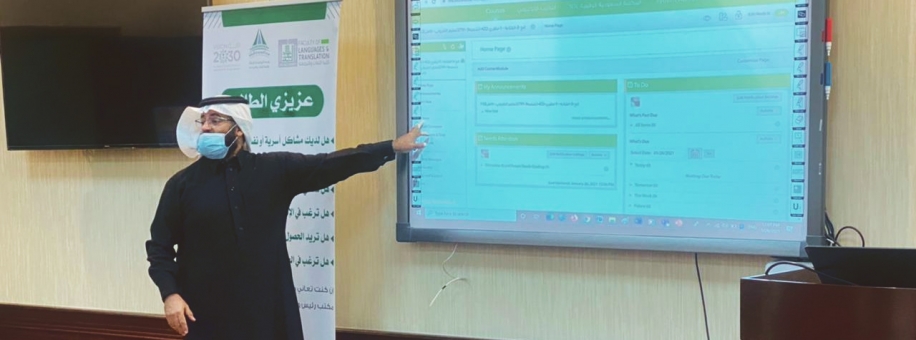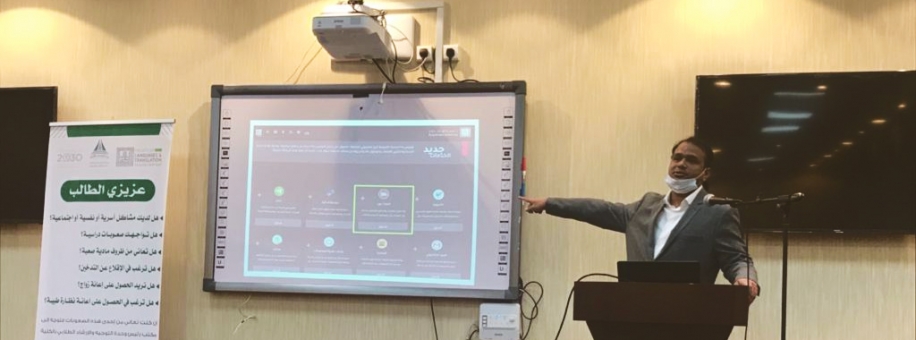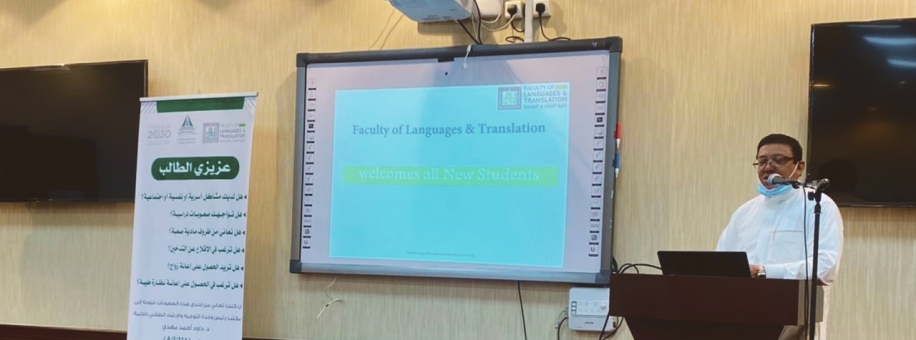Ms. Sufia Sultana and Ms. Richa Rastogi gave a presentation titled "Social Constructivist Approach: A Panacea for EFL Learners' Stress and Anxiety During the Pandemic" at a webinar arranged by the Language Research Center on October 14, 2020. The presentation was based on their research that explored learners' attitude towards online learning methods.
Sultana and Rastogi introduced the topic by mentioning how COVID-19 severely affected human life in general across the world and how it impacted educational institutions, resulting in a conspicuous shift from face-to-face to distance learning.
The primary objectives of their study, they said, were to explore students' attitudes towards online learning methods, identify teachers' capability for utilizing online platforms, highlight challenges involved in teaching, and recognize students' anxiety and stress levels as a crucial factor in deciding their academic performance and well-being.
Sultana and Rastogi highlighted the impact of COVID-19 on higher education. While reviewing the literature, they mentioned a research study conducted by the World Bank in response to the crisis. According to the study1, they said, "A failure to sustain effective tertiary systems can lead to perilous social upheavals, as youth fall outside the education system, unable to engage in active learning and uncertain about the future of their education and prospects." They also mentioned a study conducted at Arizona State University on how this crisis affected students of low-income groups.
The presenters further focused on the students' perspective during the pandemic. They substantiated the major reasons for stress and anxiety. The reasons, according to their research, are insufficient information about precautionary measures, fear of personal losses with respect to standard of living, lack of support network, claustrophobic confinement at home, and lack of motivation in self-isolation. Sultana and Rastogi's research also revealed that insufficient command of the target language, lack of exposure to electronic exams, and time-consuming schedules result in higher stress and anxiety levels.
They finally made some recommendations, such as increasing teacher training in implementing high-quality courses, creating a diverse learning environment for the students, orientation programs that train the students for self-directed learning, and developing critical thinking skills. They concluded that students' overall performance was very satisfactory despite the stress they experienced. They added students' readiness for self-directed learning and training curricula are the foundations of an integrated learning experience.
It was undoubtedly a very informative webinar as the presenters successfully pinpointed the major academic issues caused by the COVID-19 pandemic as well as how to address them. The webinar was a great success with the active participation of both male and female faculty members of the Bachelor of Arts in English program.
1Citation
"World Bank. 2020. The COVID-19 Crisis Response: Supporting Tertiary Education for Continuity, Adaptation, and Innovation. World Bank, Washington, DC. © World Bank. https://openknowledge.worldbank.org/handle/10986/34571 License: CC BY 3.0 IGO."
Date: 10/15/2020
Source: Mohammad Adil Siddique

